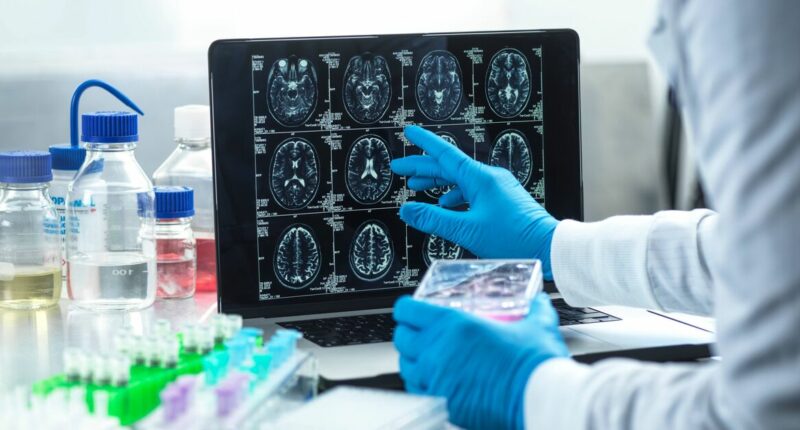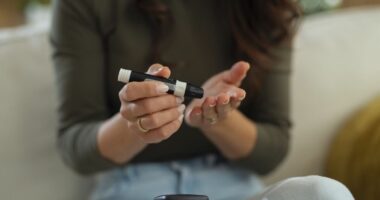Share this @internewscast.com
Recent studies have brought new optimism for the diagnosis of dementia. A research project, supported partly by the Alzheimer’s Society’s Heather Corrie Impact Fund and released by University College London, indicates that the duration needed for MRI scans to diagnose dementia can potentially be reduced to just one-third of their usual time.
Experts have praised these findings as a significant step forward in addressing the ‘postcode lottery in dementia diagnosis.’ The study highlights that shorter scans would increase comfort and convenience for patients, allowing more people to undergo scans at lower costs.
The team behind the research stated this could potentially double the number of dementia scans that can be conducted in a single day.
MRI scans are critical for accurately diagnosing dementia, enabling the exclusion of other symptom causes and helping to determine the type of dementia. New disease-modifying treatments like lecanemab and donanemab also require MRI scans before treatment begins and for monitoring safety throughout treatment.
Reducing the costs of MRI scans would help lower the overall expenses associated with delivering these treatments. The ADMIRA study (Accelerated Magnetic Resonance Imaging for Alzheimer’s disease) aimed to evaluate how reliable quick MRI scans are compared to standard clinical scans.
The researchers studied 92 participants in an outpatient setting where MRI brain scans were part of their routine clinical assessment. They carried out accelerated scans, enhancing image quality with advanced scanning techniques.
Three neuroradiologists, unaware of whether they were evaluating expedited or standard scans, reviewed these images. The team found that the faster scans reduced scanner time by 63% while being equally reliable as standard scans for diagnostic and visual evaluation purposes.
‘Hugely encouraged’
Richard Oakley, associate director of research and innovation at Alzheimer’s Society, said: “Dementia is the UK’s biggest killer, but one in three people living with the condition haven’t had a diagnosis. An early and accurate diagnosis isn’t just a label, it’s the first step to getting vital care, support and treatment.
“While MRIs aren’t the only way to diagnosis dementia, very few people with concerns about their cognitive health are offered one as part of the diagnosis process, mainly because they are expensive and not widely available. These faster MRIs, which take less than half the time of standard scans, could help end this postcode lottery in dementia diagnosis, cut costs and potentially give more people access to them.
“MRI scans can be an uncomfortable and daunting experience for patients, so anything we can do to make it an easier process is really positive. So far, this shortened MRI scan has been tested at one specialist centre with one type of MRI scanner, so more research is needed to make sure this works across different types of scanners and a diverse range of people. We’re hugely encouraged by this progress and eager to see how it continues.”
Professor Nick Fox, professor of neurology and director of the Dementia Research Centre at the Institute of Neurology, University College London, said: “As more treatments that can slow or change the course of dementia are being developed, it’s important to make sure MRI scans are available to everyone. This is because people living with dementia often need an MRI scan as part of their diagnosis before they can access these treatments.
“To help make this possible, our team carried out the first study looking at how new imaging techniques – called parallel imaging – could speed up MRI scans in clinics. Their goal is to move closer to a future where every person with dementia can get a diagnosis through a scan.”
The researchers will now expand upon their initial findings by ensuring the method functions effectively across various MRI machines, enabling it to benefit the maximum number of hospitals and clinics nationwide.












